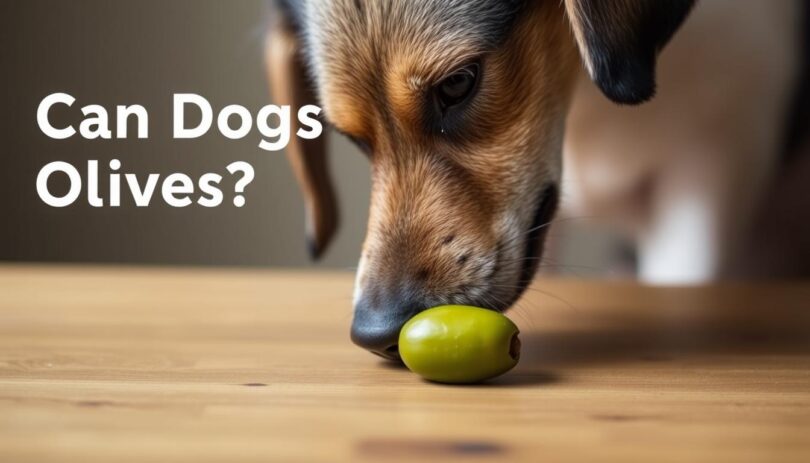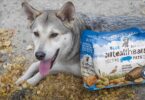If you’re wondering whether your furry friend can enjoy olives, the answer isn’t as simple as a yes or no. While plain, pitted olives aren’t toxic to dogs, factors like salt content and preparation methods play a big role in their safety. It’s important to consider these elements to ensure your pup stays healthy.
A small number of plain olives, green or black, can be safe for your dog. However, too many might lead to digestive issues like diarrhea or vomiting due to high sodium and fat levels. Be cautious with added ingredients like garlic or blue cheese, as they can be harmful to your dog.
Always check with your veterinarian before introducing new foods, including olives, into your dog’s diet. Moderation and close observation are key to keeping your pet safe and healthy.
Understanding Olives in a Dog’s Diet
Many pet owners consider olives as a potential treat for their furry friends due to their popularity in human cuisine. The unique flavor and texture of olives can make them seem like an appealing snack for dogs. However, it’s crucial to understand how preparation methods can affect their safety.
Why Dog Parents Consider Olives
Olives are a common ingredient in many savory dishes, which may lead dog owners to explore them as a unique treat for their pets. The natural flavor and sensory appeal of olives can make them seem like a suitable snack. However, it’s important to remember that while olives themselves are safe in small amounts, the high salt content from brines can be harmful to your pup.
How Preparation Methods Affect Safety
The way olives are prepared significantly impacts their safety for dogs. Brined or marinated olives contain high levels of sodium, which can be dangerous for your dog. Additionally, stuffed or marinated olives often include ingredients like garlic or blue cheese, which are toxic to dogs. Always opt for plain, pitted olives and consult your veterinarian before introducing them into your dog’s diet.
For more detailed information on feeding olives to your dog, visit our expert guide to ensure you’re making the best choices for your pet’s health.
Assessing Nutritional Risks: Salt, Fat, and More
When considering olives as a treat for your pup, it’s important to evaluate the potential risks they pose. Olives, while not toxic, come with nutritional challenges that could affect your dog’s health.
High Sodium and Its Potential Effects
Olives are high in sodium, which can be harmful to dogs in large amounts. Excessive sodium intake can lead to vomiting, diarrhea, and in severe cases, seizures. Even small amounts can contribute to long-term health issues like hypertension and kidney strain.
The Limited Nutritional Benefits of Olives
While olives do contain some antioxidants and vitamin E, the benefits are minimal for dogs. The high fat content can contribute to weight gain or pancreatitis if consumed excessively. It’s crucial to prioritize balanced dog food over human treats to meet your pup’s nutritional needs.
Always consult your veterinarian before introducing olives into your dog’s diet. Moderation is key to keeping your pet safe and healthy.
Can Dogs Have Olives: Safety Guidelines for Different Types
Understanding the nuances of olives in your dog’s diet is essential for their safety. While some types of olives can be safe, others pose risks due to added ingredients or high sodium content.
Black and Green Olives: What You Need to Know
Plain, pitted black and green olives can be safe for your dog in small amounts. They are a good source of antioxidants and healthy fats. However, their high salt content can lead to digestive issues in sensitive dogs. Always choose unsalted varieties to minimize risks.
Olive Oil and Stuffed Olives: Added Ingredients Matter
Olive oil, in moderation, can benefit your dog’s skin and coat. However, stuffed olives often contain harmful ingredients like garlic or blue cheese, which are toxic to dogs. Always check the ingredients and avoid any olives with added flavors or stuffing.
Remember, your veterinarian should always be consulted before introducing new foods to your dog’s diet. Moderation and awareness of ingredients are key to keeping your pup safe and healthy.
What To Do If Your Dog Eats an Olive
If your pup accidentally gets hold of an olive, staying calm and informed is key. While a plain, pitted olive is unlikely to cause harm, certain ingredients or the pit can pose risks. Here’s how to handle the situation effectively.
Recognizing Symptoms of Digestive Upset
Keep a close eye on your dog for signs of discomfort. Common symptoms include vomiting, diarrhea, or a noticeable drop in energy levels. These reactions are often mild but should be monitored closely.
Immediate Steps and When to Contact Your Veterinarian
If your dog eats an olive with a pit or harmful additives like garlic or blue cheese, contact your vet right away. Even if symptoms seem minor, professional advice is crucial to prevent complications. Having your vet’s contact handy ensures quick action during emergencies.
Remember, prompt action can turn a potential problem into a minor incident. Always prioritize your dog’s health and safety.
Offering Safer Treat Alternatives for Your Pup
While olives might spark curiosity, they aren’t the most nutritious or safe option for your furry friend. Fortunately, there are plenty of healthier, vet-approved snacks that offer real benefits for your pup’s well-being.
Healthy, Vet-Approved Snack Options
Consider treats like carrots, apple slices (without seeds), or green beans. These snacks are not only safe but also provide essential vitamins and fiber, making them a great alternative to olives. They avoid the high sodium and fat risks associated with olives and come with fewer potential toxic ingredients.
When introducing new foods, do it gradually and monitor for any signs of digestive upset. Always consult your veterinarian before making any changes to your dog’s diet. This ensures you’re making the best choices for your pup’s health and safety.
Bringing It All Together: Keeping Your Dog Healthy and Safe
When it comes to your pup’s diet, balance and awareness are key. While olives aren’t toxic, their safety depends on how they’re prepared and served. Plain, pitted olives can be a safe treat in small amounts, but added ingredients like garlic or high sodium levels can pose risks.
Always choose unsalted, plain olives to minimize potential harm. Avoid stuffed or marinated varieties, as they often contain toxic ingredients. If unsure, consult your veterinarian for personalized advice.
For a healthier option, consider vet-approved snacks like carrots or green beans. These alternatives provide nutritional benefits without the risks linked to olives. Remember, treats should make up less than 10% of your dog’s diet to maintain balance.
Stay informed about food safety by checking resources like dog food recalls. By being mindful of portion sizes and ingredients, you can help keep your dog safe and healthy.
FAQ
Are olives safe for dogs to eat?
Olives themselves are not typically toxic to dogs, but they can cause digestive upset due to their high sodium content and other ingredients like garlic or seasonings. Always check with your veterinarian before sharing any human food with your pup.
Can a dog eat green olives?
Green olives are not toxic to dogs, but their high sodium content can be harmful in large amounts. Plain, unseasoned olives are safer than those marinated in garlic, salt, or other ingredients.
What should I do if my dog eats an olive?
If your dog eats an olive, monitor them closely for signs of digestive upset, such as vomiting or diarrhea. If symptoms persist or worsen, contact your veterinarian immediately for advice.
Are olives a healthy treat for dogs?
Olives are not a nutritionally beneficial treat for dogs. They are high in sodium and fat, which can contribute to weight gain and other health issues. Stick to vet-approved, low-sodium treats instead.










Leave a Comment